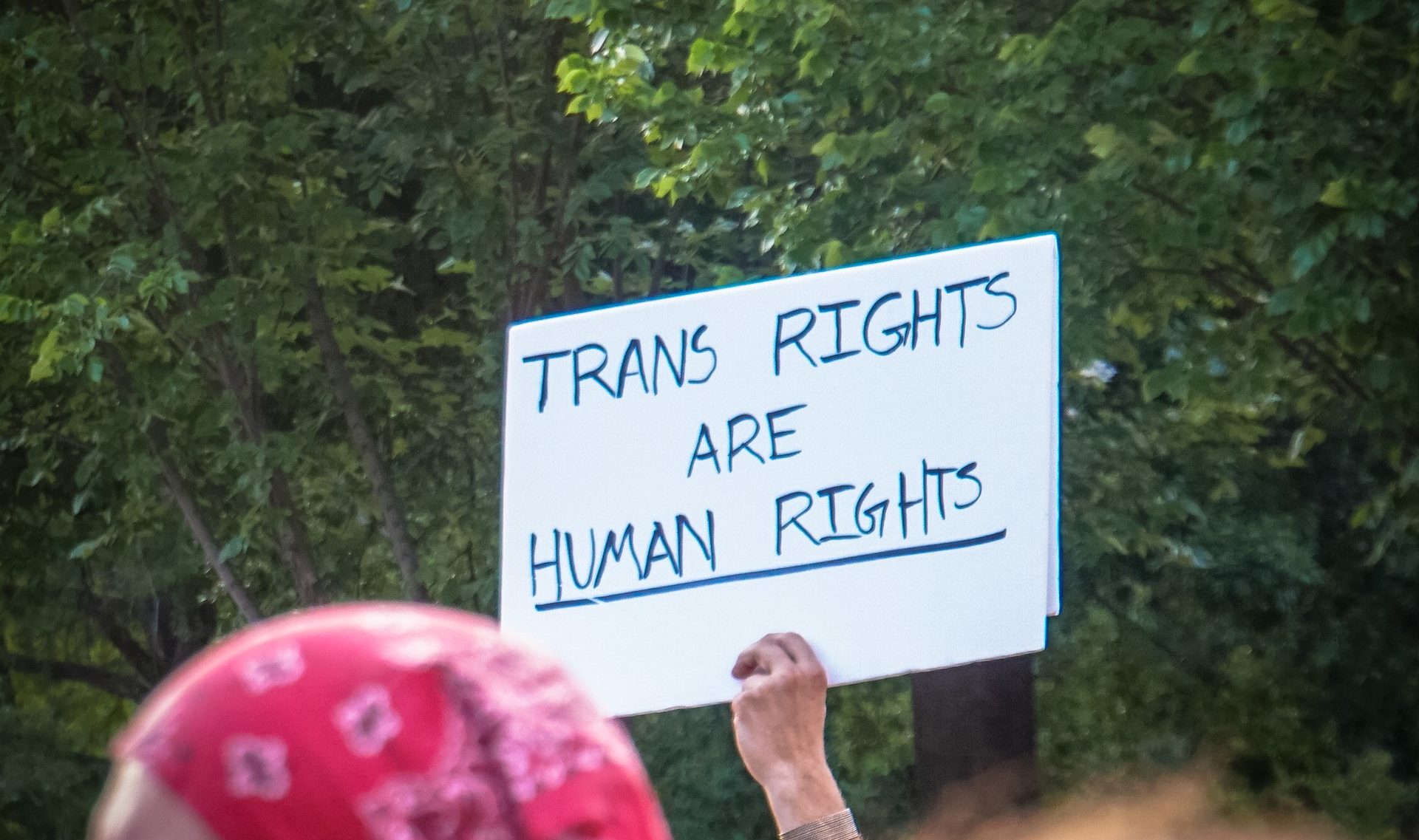
Photo Courtesy of Wikimedia.

Let’s flashback about four months back to when President Donald Trump posted one of his many nebulous threads, or a string of tweets, on social media site Twitter on July 26, 2017 at 8:55 am. This particular series of tweets barred the United States from “…[allowing] transgender individuals to serve in any capacity in the U.S. military…”. Trump then went on to describe the involvement of transgender people in the military as a “burden” and a “disruption” concluding that their participation in the military may soon come to an end. And so, a palpable state of gloom settled over many American citizens perturbed by the various implications that this mere 100-word statement would have on the United States of America.
Fittingly enough, this melancholia projected itself the most deeply through my twitter account. I consider myself to be a fairly Liberal person when it strictly comes down to a label, so inherently the twitter accounts I follow all fall within the same category. On the morning that Trump released the so-called “Trans Military Ban” tweets, there wasn’t a single tweet on my timeline didn’t have a mention of it. When I first heard the news, I immediately thought that Trump and his team of politicians had succeeded in provoking a reaction from the general American public and that vehement responses would linger for a while. I also felt like I couldn’t really react to the news itself. I only felt like I could react to its reactions–react to other people’s indignation, other people’s disdain, other people’s general feeling of deflation and hopelessness. A part of me also felt like Trump would never see this proposed Military Ban through. There would have to be some sort of external governmental power that would block Trump from following through with this potential decree. If not, then why would we even have a government to begin with?
Flashback a hair to about a month ago to when a federal judge suspended Trump’s ban on transgender people in the military. I hadn’t heard of this news anywhere on Twitter–my main source of news. I hadn’t heard a murmur of a reaction to it from anyone, online, or even on TV. It genuinely seemed like nobody cared in comparison to how impassioned the public was regarding the topic only a few months prior. I had only heard about this news more recently and in all honestly, my initial response was “Well, that was anticlimactic.” Of course, I felt deeply relieved knowing that our government had pulled through and succeeding in stopping the ban. I felt personally victimized by the initial tweets about the ban due to my close identification with the transgender community. When the news settled in, it truly felt like a slap in the face, knowing the our nation’s President openly stated that he essentially viewed the needs of transgender people as a illegitimate and burdening. I heard the voices of my fellow transgender siblings in voicing their opposition toward the tweets loud and clear, yet I hadn’t heard a peep of celebration over the ban actually being overturned.
A piece of news such as Trump’s military ban should have incited more than just heated debates and quippy remarks. The ban was a easy vehicle for people to feed into the cycle of reacting to inflammatory news yet not caring about it a few days later. It’s simply not healthy for people to have this relationship with news; this type of behavior only breeds more sensationalism into journalism, news, and politics instead of being productive and promoting the change and action that it should. Part of the reason why I find politics so hard to digest is because the news itself is never really presented in its raw form. It’s often clouded with the opinions and sentiments of other people before I view it with my own two eyes. Political news has never truly felt honest to me. A large reason why headlines such as these are so incendiary is because they create a spark from which their viewers can react to as opposed to presenting the news in its bareness. News has the potential to be more than that and ultimately it should.
When I consume news, I actively make an effort to see what I can do with the information I have the privilege to consume. I try to consider others viewpoints and think outside the political box I have put myself in. Maybe from this, the changes in my day to day life will actually encourage me to one day maybe call my senators and protest vocally. The most powerful forms of news spark reactions, but those reactions should entail actions as well.




